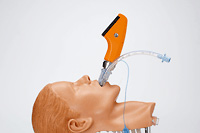From the
Reno Gazette-Journal:
PAHRUMP, Nev. (AP) — Two emergency medical technicians were facing felony charges after police say they failed to provide medical aid to a man with a self-inflicted gunshot wound to the head.
Carrol L. Meeks and Rod Fernandes were arrested Nov. 30, six days after the death of 64-year-old Linus Windler, Nye County sheriff’s officials said.
According to a sheriff’s report, Meeks and Fernandes heard a gunshot as they arrived at Windler’s trailer home in Pahrump on a 911 call about a man having trouble breathing. Inside, Meeks and Fernandes found Windler with a self-inflicted gunshot wound to the head.
The EMTs allegedly told officers at the scene that Windler was dead, but a deputy noticed Windler was breathing and had a pulse.
Nye County Sheriff Tony DeMeo told the Las Vegas Review-Journal that Windler went without treatment at the scene for at least 30 minutes, and almost an hour passed before an ambulance delivered him to Desert View Regional Medical Center in Pahrump.
Windler’s trailer is four miles from the hospital.
Windler was pronounced dead within 30 minutes of arriving at the hospital, officials said.
Fernandes and Meeks were each charged with one count of felony criminal neglect of a patient and felony neglect of an older person. Each was freed on $10,000 bail.
Pahrump Fire Chief Scott Lewis said he could not comment about the case.



